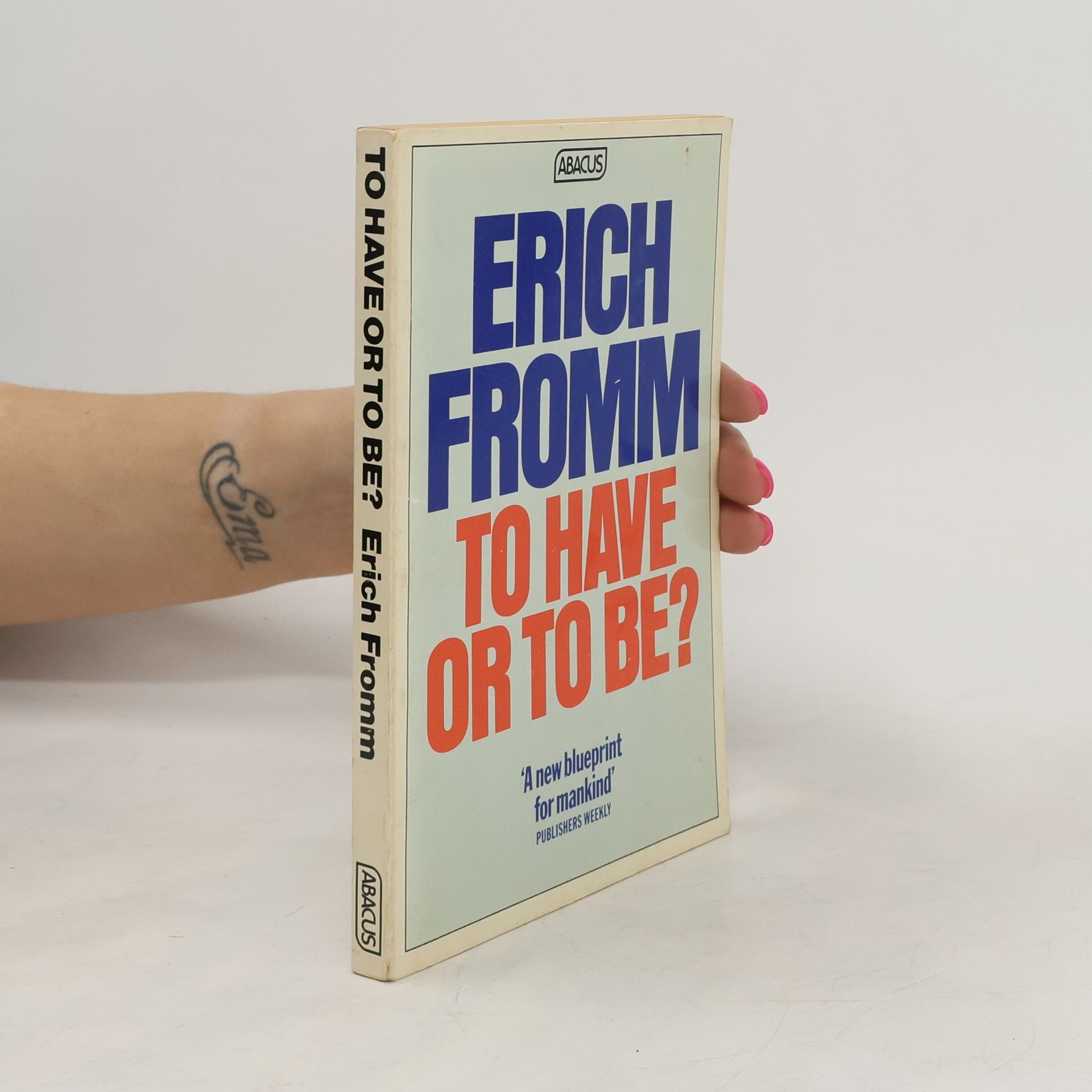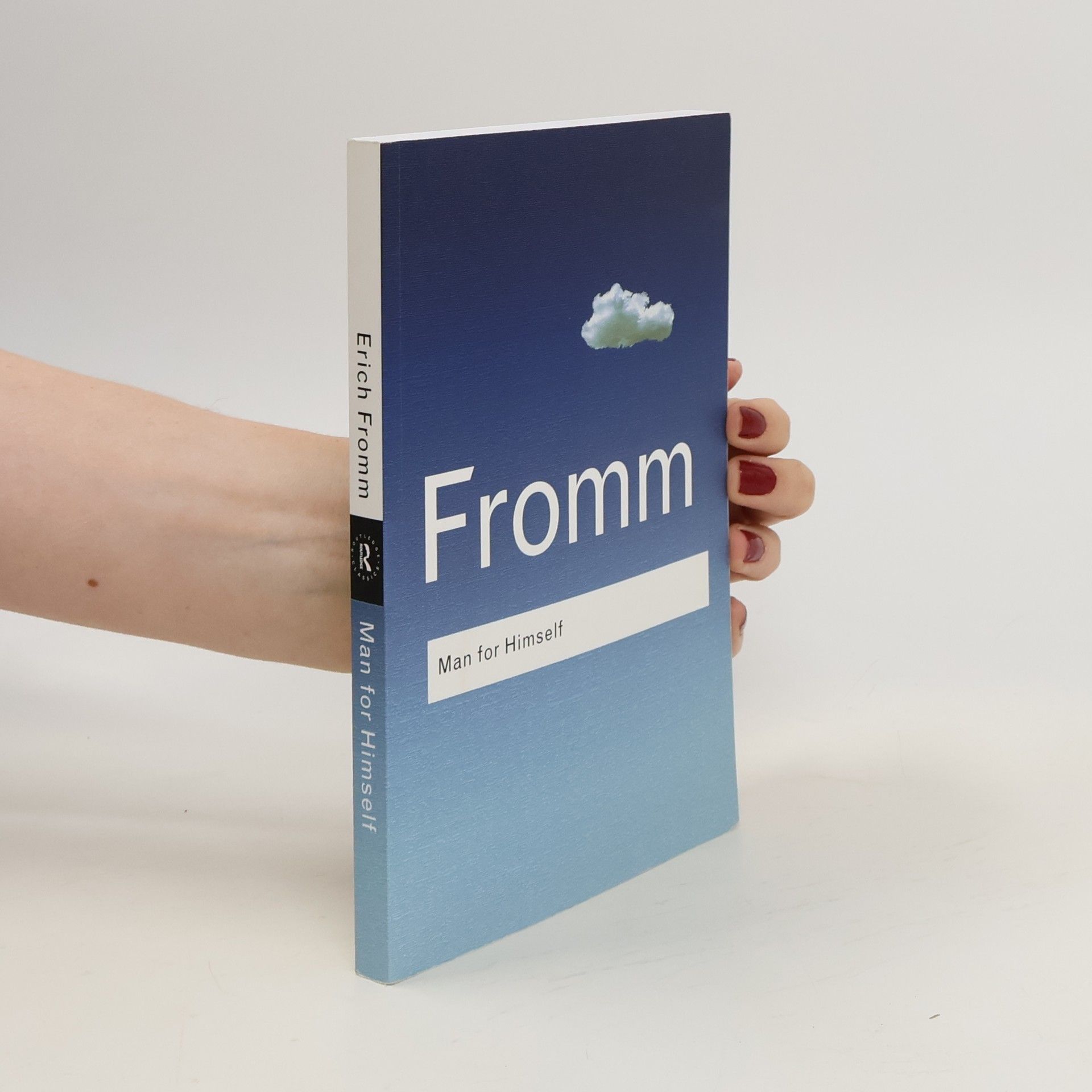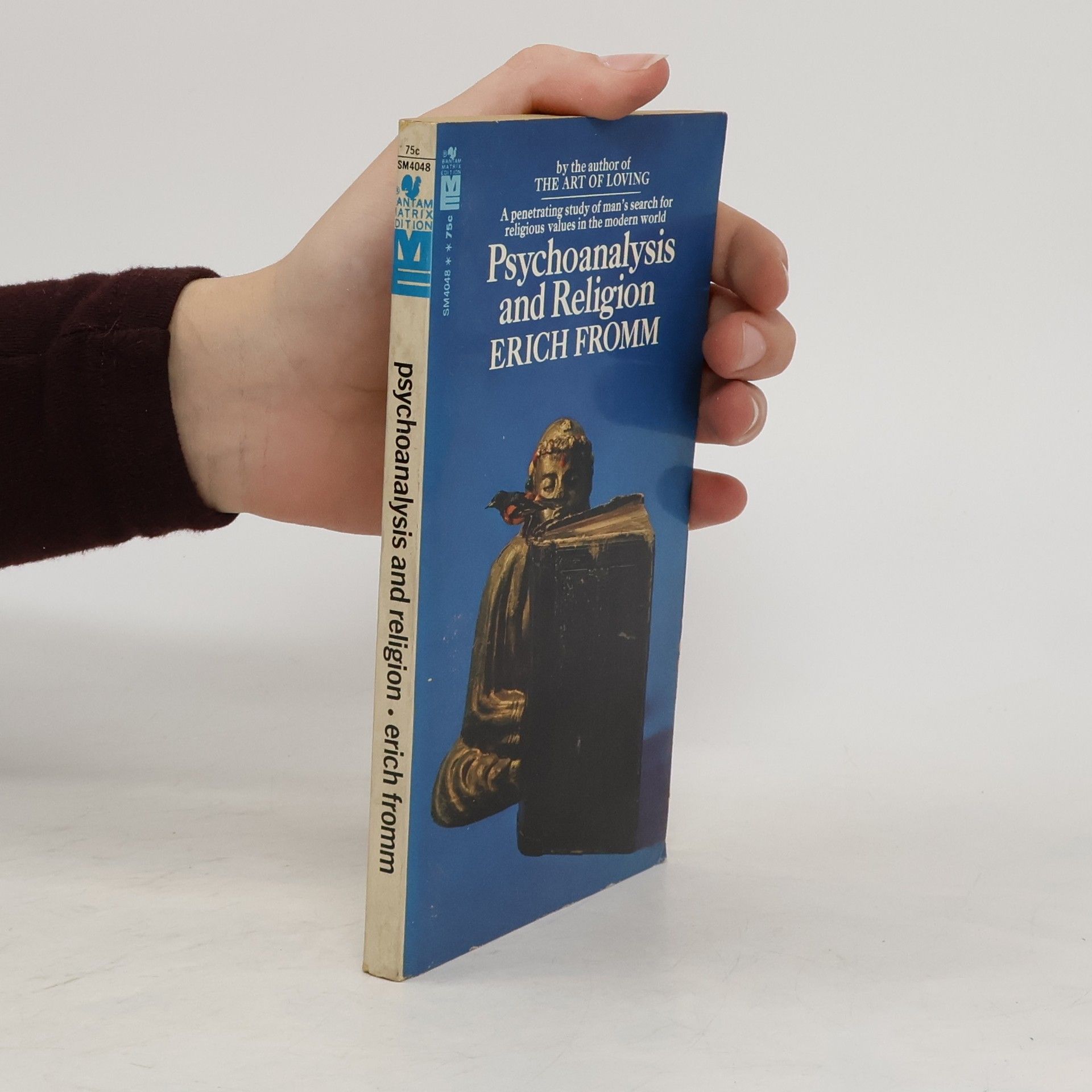Erich Fromm Books
Erich Fromm was a psychoanalyst and social philosopher who explored the interaction between psychology and society. His theory presents a unique blend of Freud and Marx, with Fromm examining how biological and societal forces shape the human psyche. He delved into how social and economic systems influence an individual's personality and behavior. His work probed the depths of human nature within the context of societal structures.







Originally published: New York: Farrar & Reinhart, 1941.
To Have Or to Be? is one of the seminal books of the second half of the 20th century. Nothing less than a manifesto for a new social and psychological revolution to save our threatened planet, this book is a summary of the penetrating thought of Eric Fromm. His thesis is that two modes of existence struggle for the spirit of humankind: the having mode, which concentrates on material possessions, power, and aggression, and is the basis of the universal evils of greed, envy, and violence; and the being mode, which is based on love, the pleasure of sharing, and in productive activity. To Have Or to Be? is a brilliant program for socioeconomic change.>
In a world in which violence in every form seems to be increasing, Erich Fromm has treated this problem with deep perception in the most original and far-reaching work of his brilliant career. Fromm asks: what is there in the conditions of human existence to lead man to the orgies of destruction and violence in which he has indulged? By drawing on the findings of anthropology, palaeontogy, psychology and history; and including striking character analyses of Stalin, Hitler and Himmler, he shows how the failure to use our capacity for love and reason results in the development of the reverse: we wish to control life absolutely, or to destroy it.
The Nature of Man
- 416 pages
- 15 hours of reading
ForewordIntroductionThe Upanishads --Gautama --Shin Ichi Hisamatsu --The Bible --Heraclitus --Empedocles --Sophocles --Socrates and Plato --Aristotle --Lucretius --Epictetus --Plotinus --Sextus Empiricus --Saint Gregory of Nyssa --Saint Augustine --Saint Thomas Aquinas --Meister Eckhart --Nicolaus Cusanus --Marsillo Ficino --Pietro Popponazzi --Giovanni Pico della Mirandola --Erasmus of Rotterdam --Martin Luther --Thomas More --Juan Luis Vives --Paracelsus --Saint Teresa of Avila --Saint John of the Cross --Michel de Montaine --Rene Descartes --Baruch Spinoza --Blaise Pascal --Gottfried Wilhelm Leibniz --Francis Bacon --Thomas Hobbes --John Locke --David Hume --Giambattista Vico --Jean-Jacques Rousseau --Immanuel Kant --Georg Wilhelm Friedrich Hegel --Johann Gottfrid Herder --Jeremy Bentham --Arthur Schopenhauer --Auguste Comte --Ralph Waldo Emerson --Ludwig Feuerbach --Karl Marx --Soren Kierkegaard --Friedrch Nietzsche --William James --John Dewey --Sigmund Freud --Carl Gustav Jung --Henri Bergson --Edmund Husserl --Alfred North Whitehead --Miguel de Unamuno --Antonio Machado --Max Scheler --Nicolas Berdyaev --Pierre Teilhard de Chardin --Jose Ortega y Gasset --Martin Heidegger --Francisco Romero --Lewis Mumford --Erich Fromm --Jean Paul Sartre --Simone Weil --Edith Stein --Adam Schaff --David RiesmanBibliography
The revision of psychoanalysis
- 149 pages
- 6 hours of reading
It was Erich Fromm's conviction that psychoanalysis needs to retain Freud's essential insight into the unconscious while replacing his mechanistic-materialistic philosophy with a humanistic one. In this book, never before published in English, Fromm presents such a revision of psychoanalysis, one that is both humanistic and dialectical. The Revision of Psychoanalysis is Fromm's long-expected account of his own personal way of understanding and practicing psychoanalysis. Of special interest to today's readers are his continuing efforts to understand the meaning of sexuality, his critique of Herbert Marcuse's vision of psychoanalysis, and the implications of a Freudian analytical social psychology for the reform of social arrangements. The book is essential reading for psychologists and for social and political theorists in many disciplines. For psychoanalysts, it provides Fromm's most provocative and unique recommendations for the revision of psychoanalysis.
Erich Fromm fought long and hard for the rights and freedoms of the individual. He also recognized that fundamental to this pursuit is the promotion of self-knowledge. In encouraging people to analyze their own behavior, Fromm identified the crucial link between psychology and ethics that underpins all our actions. Moreover, he saw in this a way out of the meaningless impasse which he regarded as the plight of the modern human race. The task that Fromm sets himself, therefore, in Man for Himself is no less than to identify "what man is, how he ought to live, and how the tremendous energies within man can be released and used productively." The resulting book is ample witness to Fromm's success. It makes for exciting, illuminating, even life-changing reading.
The Art of Being
- 144 pages
- 6 hours of reading
A classic from one of the masters of psychotherapy, Erich Fromm.[Bokinfo].
The Sane Society
- 424 pages
- 15 hours of reading
This critique of contemporary capitalism established Fromm as one of the most controversial political thinkers of his generation, and was originally published to wide acclaim and even wider disapproval. schovat popis
In this classic work a noted psychoanalyst assesses the persistent tension between traditional religion and the underlying philosophy of psychoanalysis, which many believe regards the satisfaction of instinctive and material wishes as the sole aim of life.


